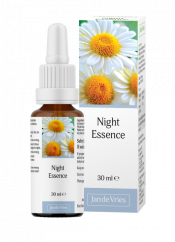Can children get insomnia?

Does your child wake you up in the middle of the night or experience difficulty in falling asleep? You’re definitely not alone - approximately 25% of children will experience insomnia, or more specifically, behavioural insomnia, a form of insomnia that is associated with difficulty falling and staying asleep.1
Behavioural insomnia can take different forms and is closely related to sleep hygiene practices. In the case of children, Sleep Onset Association and Limit Setting are both conditions that can derive from behavioural insomnia, affecting how your child perceives bedtime and prompting them to challenge any set routine you may try to enforce.
This can be a problem as children rely on sleep to develop their brains and ensure healthy growth. On average, between the ages of 3-11, your child should be getting around 9-13 hours of sleep, with older children such as teenagers needing around 8-10 hours.
If your child is sleep deprived, you may notice certain behavioural changes during the day – perhaps they are less able to focus at school and more prone to outbursts during class time. Sleep deprived children are also more likely to display anxious behaviour and mood swings.
In the short term, these symptoms may affect your child’s performance at school and social interactions while the long-term repercussions can be more damaging.
What causes child insomnia?
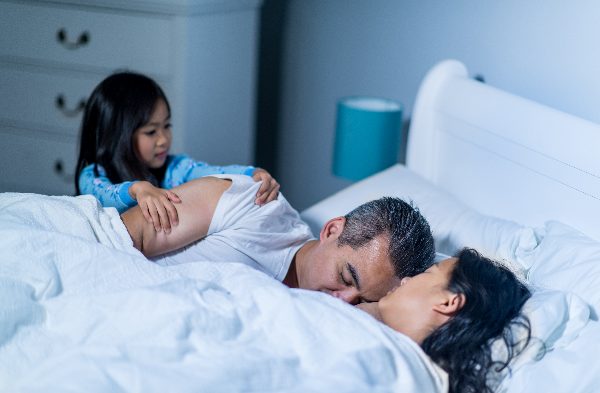
What causes behavioural insomnia? Well it could be down to a number of different factors from your child’s sleep environment to stress to their diet. In young children, Sleep Onset Association is the most common form of behavioural insomnia and can occur when your child starts to form negative associations with sleep and cannot drift off without needing comfort.
Of course, this often means that you may have to sit with your child until they fall asleep; this then causes them to rely on you. This can be a tricky cycle to break – most parents would find it extremely difficult to ignore their child’s plea for comfort. Your child may even try to resist their appointment bedtime and will find excuses to leave the bed after you have said goodnight.
Another major cause of child insomnia is their diet. Fizzy drinks, refined sugar, caffeine and processed foods can have an impact on your child’s central nervous system, making them feel far more awake at night than they should. As I covered in my blog on ‘What do you put in your child's pack lunch box?’ almost 99% of children who take pack lunchboxes to school, in England and Wales, aren’t reaching the nutritional requirements.
So diet is very important but so is creating an environment that your child will wish to sleep in. Allowing your child access to devices such as tablets and mobiles, or even your television, before bedtime can cause them to experience problems falling asleep. This is because the blue light radiation from such devices can inhibit their production of melatonin, a sleep hormone.
Finally, Obstructive Sleep Apnoea or OSA, can interrupt your child’s sleep. This condition can be caused by nasal congestion or enlarged adenoids. These factors can block your child’s airway, causing snoring, sleep disruption and other issues such as hyperactivity and behavioural problems.
How you can treat child insomnia
1 - Establish a routine and stick to it
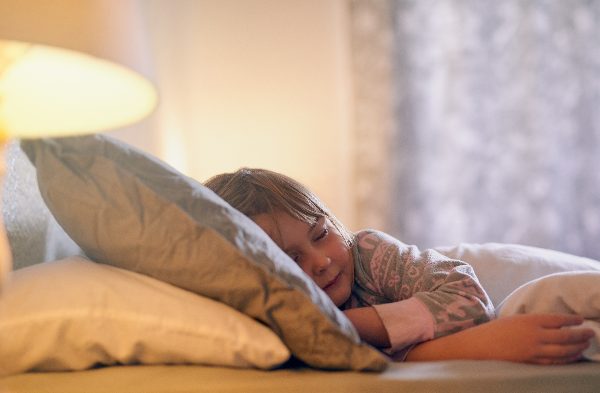
Your child may try various tactics to get you to alter their bedtime or may even make excuses to stay awake beyond their established bedtime. It’s important that once you decide upon a bedtime that you stick to it not matter what, especially on school nights. Once you have tucked your child into bed, there should be no conceivable excuse for them to leave the room until morning. I would even try to stick to this routine through the weekend, at least in the beginning, as any alterations may send the message that bedtime is negotiable.
2 – Get your child to sleep independently
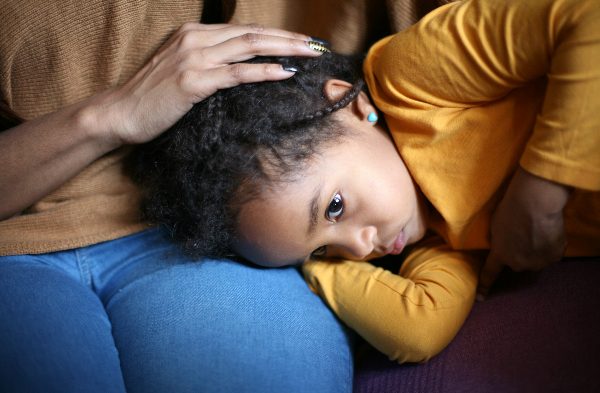
If your child has become dependent on your presence to get to sleep, it’s important that you try and break this cycle. This may sound heartless and even a little cruel, especially if your child suffers from nightmares, but the longer you feed the cycle, the harder it will become to escape it. I’m not suggesting that you immediately stop comforting your child at bedtime – that would probably be too difficult – but you should gradually try and reduce your presence.
Limit your interactions with your child at this time. You could start by sitting with your child for the first few evenings but try to leave the room before they sleep. If they start to protest, reassure them that you will nearby if they need you. Alternatively, you could start by sitting on your child’s bed, gradually moving away a little at a time each night until you’re standing next to the door.
3 – Ban all devices
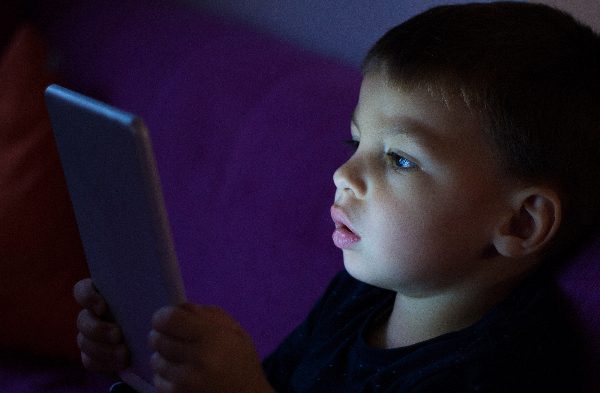
As I mentioned earlier, I would ban your child from using electronic devices at least an hour before bedtime. Mobile phones, televisions and tablets all fall under this category as they all emit blue-light that can inhibit your child’s melatonin production. Instead, try reading your child a book before bedtime and focus on games that will help your child to relax.
If your child is used to sleeping with the light on, again try to curb this habit. Bright lights can disrupt your child’s sleep pattern and may cause them to wake in the middle of the night. You could try using a night-light but a better long-term plan might be to get your child more comfortable with the dark by playing games during the day or practice certain aspects of mindfulness with them, generating positive thoughts before bedtime.
4 – Make sure they’re eating sensibly

Your child’s diet can have a huge impact on their sleep patterns so it’s really important that you make sure they are eating the right things. Chocolate and fizzy drinks are fine as the occasional treat but your child shouldn’t be consuming them on a daily basis. Chockfull of refined sugars and caffeine, ultimately they will disturb your child’s central nervous system and make them more hyperactive during the day.
It’s not always easy to prepare meals from scratch, especially during the working week so I do understand the convenience of reaching straight for the freezer. However, there are options out there such as stir-fry or soups that are relatively quick to make. You could even cook a batch of meals on Sunday and freeze them so they are on hand later on in the week.
It is crucial that you try and focus on making sure they’re getting enough fruit and veg. This may involve you having to get creative with your food choices but I find it’s always a good idea to get your child as involved in baking as possible. Let them help you cook dinner and make packed lunchboxes – this gives them an appreciation of food and may open a dialogue, allowing you to determine what compromises you can make.
Here at A.Vogel, we do have a fantastic collection of healthy recipes that are extremely nutritious without being boring. Why not whip up some Healthy Oreo Cookies or get your child to help you bake a batch of our delicious Easy-to-Make Blueberry Pancakes?
5 – Try and get them exercising

Compared to us adults, children really do seem to have a boundless energy supply so it’s no wonder that some of you have to go the extra mile to get them tired out.
However, recent research has revealed that exercise can have a direct affect upon your child’s sleep patterns. One study published by the Archives of Disease in Childhood stated that inactivity can make it more difficult for your child to fall asleep at night, while children that were active during the day fell asleep more easily.2
Unfortunately, child obesity is also a factor to consider, which has really elevated exercise to the forefront in recent years. Now it is recommended that children get at least one hour of physical exercise a day. If you’re unsure whether or not your child is reaching this goal, I would consider signing them up for activities such as football, rugby or netball.
These group sports are excellent for encouraging your child’s social development; however other activities such as swimming, karate or horse-riding are also beneficial. Surprisingly, yoga may be another great choice to consider – it may help to teach your child breathing techniques, flexibility and mindfulness!
2https://www.medicalnewstoday.com/articles/158482.php
What about herbal remedies?
Our traditional herbal sleep remedy Dormeasan is not recommended for children under the age of 18; however, there are still a few alternative options to consider.
Our sister company, Jan de Vries, offers a variety of flower essences that may help to  soothe and comfort your child.
soothe and comfort your child.
I would personally recommend their Child Essence, which is suitable for children over the age of 2. Prepared using a blend of flower tinctures, including chamomile and vervain, this gentle remedy allows your child to relax and adjust in times of stress.
Night Essence may be another option worth considering too, as this tincture is specifically aimed at helping you to feel calmer and rested at night – ideal for excited and hyperactive children! Simply add 3 drops to water for children between the ages of 2-7.







